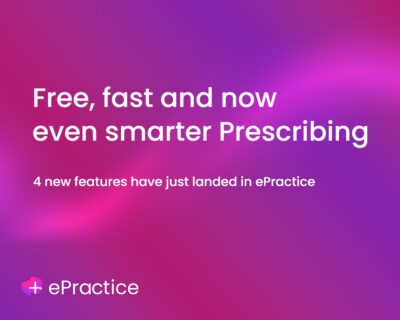Steps 4 – 6: Review the options
In Part 1 of this series, we explained why a specialist practice management solution will enable you to run all aspects of your practice from one place and how to get started.
The next step is to look at what’s out there and how it meets your needs and budget. When it comes to researching software vendors the internet is a good place to start but do ask colleagues for recommendations too.
Step 4: Check system functionality
A practice management system should enable you to efficiently carry out the routine admin tasks within your independent practice, including:
Patient management
- Register patients and confirm their insurance status and demographic information
- Secure patient database
- Flag patients and produce personal letters
- Patient notes and alerts
Diary management
- Fix and rearrange appointments
- Manage schedules for clinics, theatre, etc
- Set-up recurring sessions
Billing and payments
- Submit validated electronic bills to insurers and produce paper bills
- View outstanding invoices
- Reconcile bulk payments from insurers
- Manage shortfalls and reallocate outstanding amounts
Document management
- Produce appointment reminders
- Automatically generate shortfall letters
- Batch print letters
Reporting
- Create comprehensive financial reports such as outstanding invoices by payor, payment summaries and activity summaries
- Export reports to other software e.g. Excel to further analyse and remove any patient identifiable data so they can be shared
Step 5: How secure is the system?
Failure to take reasonable steps to protect patient data could leave you vulnerable to cyber criminals, cause serious reputational damage and incur a hefty financial penalty from the Information Commissioner’s Office. Password protection and data encryption should be a minimum requirement for any secure practice management solution. Healthcode’s security page will give you further details.
If you rely on any third party supplier to process or store data on your behalf, do make sure they have appropriate information security safeguards in place. Ask about the arrangements for storing data – will it be held in a cloud or a private dedicated infrastructure and if so, where? Does it comply with UK GDPR Regulations?
Step 6: What support can you expect?
The provider must be able to offer the right level of support through installation and beyond. Ask yourself:
- Will they offer initial training?
- Do they provide ongoing technical support, including site visits if required?
- If the system crashes, how quickly can they guarantee a response?
- Is data back-up and recovery included and if so, what assurance is there that data will be stored securely?
- How will system updates be managed and will additional support will be provided?
Want to know more?
If you want to see what ePractice, our practice management software, can offer you why not book a demo with our Business Development team.




